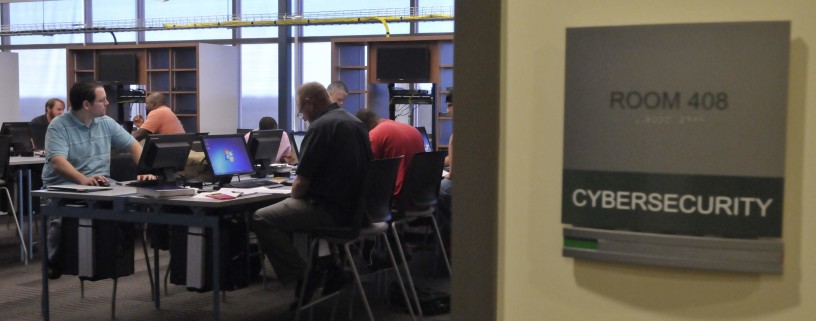As we enter the new school year, college students all over the country are returning to campus to begin or continue their studies. With so many things on their minds at the beginning of the term – what courses to take, choosing their housing and roommates, adjusting to a new and unfamiliar situation – cybersecurity may not be foremost in their minds. But the responsibility to protect data and devices lies almost entirely with the individual, and there are several simple ways to fortify your device against a cyberattack.
Protect your information
We often hear people say they do not have anything worth stealing on their device, and therefore they do not need to be concerned with cybersecurity. But with only the smallest amounts of information – your social security number alone, for example – a hacker can steal your entire identity and begin accessing your bank accounts, creating new accounts and requesting credit cards all under your name. Whether or not you feel that your device holds sensitive personal information, chances are it does and a determined hacker could access it without the proper precautions being taken.
There are a handful of fairly obvious ways in which students can be vigilant against hackers. One thing to keep in mind is that no legitimate entity will ever ask for your passwords, whether by email, over the phone or via text. If you ever encounter a message where someone is asking for a password to one of your accounts, do not provide that information. Also remember to not open attachments from anyone who is not a trusted source, and always be sure to check the email address from which the message is sent. Some hackers will create fake university emails that at a glance appear legitimate (i.e., “ous.edu.com,” rather than “osu.edu”).
HAVE GOOD BACKUPS
Another simple way to add extra security to your device is to back up all of your files. Store your files on a cloud-based server such as iCloud, Dropbox or Google Docs, and to an external drive, such as a USB or hard drive, so if you lose your physical device you do not lose your files. Speaking of your physical device, it is recommended that you have some sort of a lockbox in your living space in which to store your device when you are not using them. This prevents theft and any unwanted access to your device, especially in a place like a dorm where you are sharing space with several other people. Passwords are also a very important and simple way to protect your data. Make sure your passwords are complex and vary across accounts. Do not use the same password for multiple accounts. Complex passwords should include at least 8 characters, both upper-and-lower-case letters, at least one number and special characters (i.e., “&,” “!”). One way to create a strong, complex password is to use acronyms. For example, your password could be “cBh0sBw!,” meaning “cincinnati Bengals have 0 super Bowl wins!.” In conjunction with a strong password, setting up a two-step authentication procedure is also highly recommended. This means that a hacker will require more than just a password to access your device. Two-step authentication means that in addition to your account password, you will be prompted to provide another piece of identifying data in order to access the account from an unfamiliar device. This is common procedure with online banking applications. If you try to access your bank account from a device that you do not normally use for banking, you will be prompted to enter a second piece of data – usually a unique code sent by the bank to either the phone number or email address associated with your account. This second step helps ensure that only you can access your accounts.
USE A VPN
One of the best ways to protect your data is by using a virtual private network, or VPN. These networks route your internet traffic to a smaller, private server, while also encrypting your data and location along the way. VPNs are especially useful when signing into a public WiFi network. Public networks are highly vulnerable to cyberattacks by hackers, and using a VPN is the best way to be secure on one of these networks. Even if your device is hacked on the VPN, the data being shown to the hacker is all encrypted, so it provides an added layer of security.
With so many headaches already to start the year, keeping up with cybersecurity may just seem like another hassle. But the headache of losing your data or worse, your identity, will be far larger than taking these simple, preventative steps right from the start. Protect your data!

